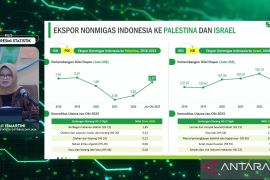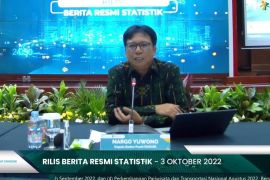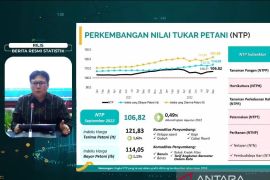"I think it will help (curb inflation). At least, it will make the prices stable. I do not know whether it could lower the prices, but making the prices stable is already a good enough measure," BPS Deputy for Statistics, Distribution, and Services Sasmito Hadi Wibowo stated in Jakarta on Monday.
The Ministry of Trade had earlier revealed its plan to impose HET for food commodities, such as sugar, frozen meat, and non-packaged cooking oil, effective April 10, 2017.
The three food commodities have a relatively high contribution to the inflation rate, so the Ministry of Trade has accorded priority to them in its plan to impose HET.
The price of sugar per kilogram (kg) will be set at Rp12,500; frozen meat, at Rp80 thousand per kg; and non-packaged cooking oil, at Rp12 thousand per liter.
Modern retailers are obligated to abide by the IHTs decided by the Ministry of Trade.
With regard to inflation in May and June, the BPS has forecast that it will increase in line with the fasting month of Ramadhan and the subsequent post-fasting Lebaran festivities.
In the run-up to the fasting month and Lebaran, inflation usually increases, as demand also increases, notably for meat.
Last March, a deflation of 0.02 percent was recorded, which was unexpected, and was triggered by a decline in the prices of several food commodities.
Food items experienced a deflation of 0.66 percent, contributing -0.08 percent to the March 2017 deflation.
Food commodities that contributed to the deflation rate included red chili, at -0.08 percent; rice, at -0.03 percent; cayenne pepper, at -0.03 percent; fresh fish, at -0.02 percent; eggs, at -0.02 percent; and garlic, at -0.01 percent.
Commodities undergoing price hikes included "gengkol," or dogfruit, electricity tariff, shallots, grapes, cooking oil, fried chicken, rice with side dish, kretek cigarettes, and gasoline.(*)
Editor: Heru Purwanto
Copyright © ANTARA 2017










